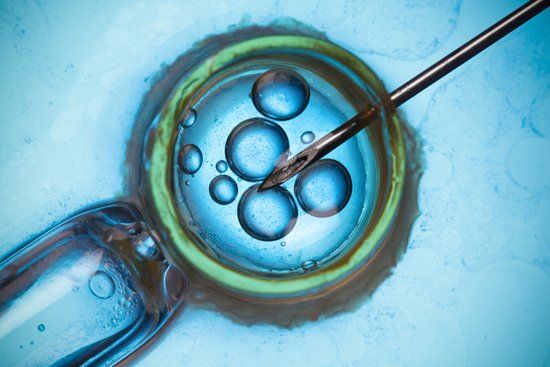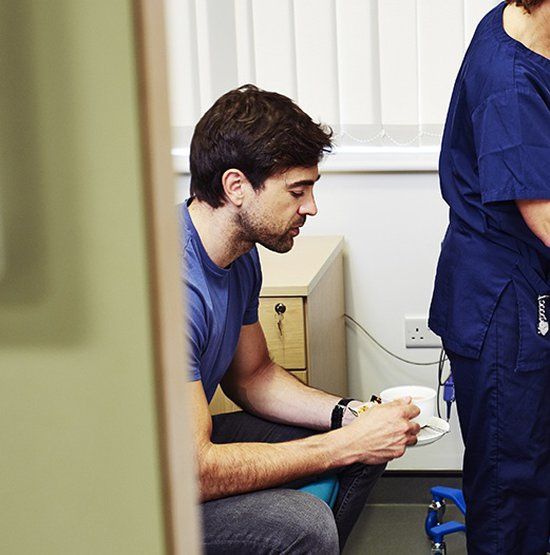
In today’s blog to mark National Fertility Awareness Week (2-8 Nov), our Lead Embryologist and Director of our clinic, Dr Debbie Falconer, continues with an overview of the different types of treatments we offer: IUI, Donor Sperm Insemination, Induction of Ovulation, Surrogacy and Surgical Sperm Retrieval; and when each might be used:
Intrauterine Insemination – IUI
What is it?: IUI involves inserting the sperm close to your egg, at the time you ovulate. IUI can be either a natural cycle – with the procedure timed for when you ovulate naturally – or stimulated, which is when you take fertility drugs to encourage mature egg production.
When would it be used?: IUI is often used if the cause of infertility is ovulation problems. For it to work, there must be no blockages in your fallopian tubes and the sperm used must be healthy and motile.
Donor sperm Insemination – DI
What is it?: Donor sperm insemination is the same as Intrauterine Insemination, but involves you using the sperm of a donor instead of your partner’s.
When would it be used?: DI is commonly used by single women to get pregnant, or in cases when a couple need a sperm donor because the male partner has a sperm disorder that prevents his own sperm being used, such as a low sperm count, no sperm production or there’s a risk of passing on a genetic disease.
Induction of Ovulation
What is it?:Induction of Ovulation simply involves stimulating your ovaries to produce a mature egg, to ensure you ovulate. You would use the same types of fertility drugs as in IVF. We pinpoint the moment of ovulation using blood tests, you can then have intercourse as normal or opt for treatment such as IUI or DI if using donor sperm.
When would it be used?: Induction of Ovulation is useful if you suffer from ovulation problems such as irregular periods, lack of a period or Polycystic Ovarian Syndrome.
Surrogacy
What is it?:Surrogacy is when another woman carries and gives birth to a baby for you. There are two types of surrogacy: host surrogacy is where the surrogate carries your fertilised embryo. She is not biologically linked to the baby, your partner’s sperm or that of a donor is used to fertilise your egg like IVF, and instead of being transferred into your womb, it’s transferred into your surrogate instead. Straight surrogacy is where your surrogate uses her own eggs and your partner’s sperm, or a donor’s. She is the genetic ‘mother’ of the baby.
Surrogacy is very complicated treatment procedure that has many legal issues to consider. We’ve helped guide and treat many couples who need to use surrogacy to have their families, including same sex male couples.
When would it be used?:A surrogate is often used when the woman isn’t physically able to carry the baby herself. It’s also the option to help male same-sex couples have a family.
Surgical Sperm Retrieval - SSR
What is it?: Surgical Sperm Retrieval is a highly-specialised clinical procedure performed by our urologists Dr Stephen Payne and Dr Steve Bromage, both leading experts in the field of male infertility. Surgical Sperm Retrieval is a way of collecting sperm from men who aren’t producing any in their ejaculate. It’s performed in our theatre, under anaesthetic, using different techniques. Any sperm retrieved are analysed by our expert andrologists and then used in treatment via ICSI.
When would it be used?: SSR is used to help men who suffer from Azoospermia (no sperm in their sample) which may be caused by blockages in the tubes, vasectomy, failed vasectomy reversal or low or no sperm production in the testicle. Any men who need SSR are fully evaluated by our specialists to ensure the right SSR technique is identified, for best results.
If you have any questions about the types of IVF treatments we offer, you can speak to our friendly Patient Advisors on 0161 300 2737.
If you prefer, you can also use our discreet Live Chat facility via our homepage, or our free Ask the Expert feature. You can even request a callback from our team, at a time that most suits you. We look forward to talking with you.
Tomorrow’s blog topic for National Fertility Awareness Week: All about funding your private IVF treatment through pre-paid packages and plans.
Last updated: 20th January 2020








